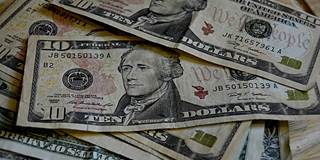Will Dollar Strength Trigger Intervention in 2017?
While it is quite plausible to expect that Dona'd Trump’s incoming US administration will want to reverse the dollar’s climb, it is equally plausible that no other major economy will help. If the strong dollar prompts intervention in currency markets in 2017, the most likely scenario is one in which the US intervenes alone.
CAMBRIDGE – Only a small group of central banks refrain from intervening in the foreign-exchange market to stabilize their currencies’ exchange rate or coax it in the desired direction. Even when they do not intervene directly, their interest-rate policies are often formulated to be compatible with exchange-rate objectives. As a result, freely floating currencies are comparatively rare. This has important implications for the United States authorities as they confront a sharp rise in the dollar’s exchange rate.
When a potential or actual loss of confidence in the currency threatens to bring about large capital outflows, intervention usually takes the form of sales of foreign-exchange reserves to mitigate the magnitude or speed of depreciation. The People’s Bank of China’s ongoing reserve losses are a salient recent example. The most recent US intervention in foreign-exchange markets (which has been rare in general) to support a weak dollar dates back to 1992-1995.
At the other end of the spectrum, concerns about lower international competitiveness as a result of significant currency appreciation may be even more common among policymakers and export-oriented firms. Worries about overvalued currencies permeated policy discussions in many emerging markets as recently as 2013, and sustained efforts to lean against the wind of appreciation resulted in record reserve accumulation for many central banks.



CAMBRIDGE – Only a small group of central banks refrain from intervening in the foreign-exchange market to stabilize their currencies’ exchange rate or coax it in the desired direction. Even when they do not intervene directly, their interest-rate policies are often formulated to be compatible with exchange-rate objectives. As a result, freely floating currencies are comparatively rare. This has important implications for the United States authorities as they confront a sharp rise in the dollar’s exchange rate.
When a potential or actual loss of confidence in the currency threatens to bring about large capital outflows, intervention usually takes the form of sales of foreign-exchange reserves to mitigate the magnitude or speed of depreciation. The People’s Bank of China’s ongoing reserve losses are a salient recent example. The most recent US intervention in foreign-exchange markets (which has been rare in general) to support a weak dollar dates back to 1992-1995.
At the other end of the spectrum, concerns about lower international competitiveness as a result of significant currency appreciation may be even more common among policymakers and export-oriented firms. Worries about overvalued currencies permeated policy discussions in many emerging markets as recently as 2013, and sustained efforts to lean against the wind of appreciation resulted in record reserve accumulation for many central banks.